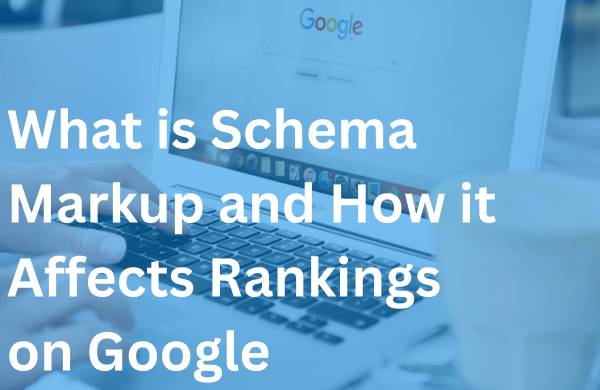As AI grows more powerful and applicable to everyday life, many have started to capitalize on using it in business. Specifically, OpenAI’s language model is ChatGPT.
ChatGPT is useful in several business applications. This AI tool can assist with content creation, customer service, data analysis, and lead generation. However, it comes with its share of risks. It is known to provide incorrect and biased information and threaten security.
Understanding its capabilities and limitations can help businesses use ChatGPT successfully. Learn how to use ChatGPT for business without damaging your organization’s reputation.
1. Understand the Limitations and Capabilities
ChatGPT is an artificial intelligence chatbot. It uses deep learning to produce human-like text through neural networks that mimic the human brain. The technology responds to prompts and can create social media posts, articles, emails, essays, and even pieces of code.
It can be used in various applications. ChatGPT business use cases include:
- Computer code creation and checking for bugs in code
- Email drafting
- Social media content creation
- Math problem solving
- Blog, article, and essay writing
- Article summarization
- Product descriptions
- And more!
For example, companies wondering how to use chat GPT for a business email can feed the system information about the recipient, context, and the desired outcome to get an effective email draft. The system can also create engaging subject lines, personalize content, and sequence ideas to help strengthen your email marketing.
Although ChatGPT simplifies various business processes, it comes with its share of risks. We’ve seen it provide shallow insights. It also can’t cite sources, leading to a lack of transparency. Many people notice that its responses seem unnatural.
It also does not understand the nuances of language, such as sarcasm and irony. It may focus on the wrong part of the question. It may also rely on internet data, which is often biased. These are important things to consider when using ChatGPT as a language assistant.
2. Verify and Fact-Check AI-Generated Content
ChatGPT can be successful, but human oversight is crucial. Humans must check information before AI-generated content is published or released. It requires a combination of fact-checking and eliminating biases.
Fact-Checking
To fact-check ChatGPT, you must begin with fractionation. This involves breaking down information to determine what claims are being made.
Then, it’s time for lateral reading, which involves evaluating the credibility of the source and comparing it with other sources. It also involves searching the Internet for similar claims.
Go beyond checking if these claims exist on the Internet and ensuring they are made by reliable sources. Depending on what you find, you may want to rephrase ChatCPT’s information, eliminate it, and replace it with more accurate information, or leave it as is.
Addressing Potential Biases
ChatGPT gets its information from the internet; unfortunately, much of what’s written on it reflects biases. AI is known to generate biased information concerning gender, income levels, feedback, and less obvious biases like group attribution bias and historical bias.
Humans should be aware of common AI biases to know what to look for. They should fact-check biases to see if they are based on real information. If so, they may rephrase sections to reflect similar findings in a non-biased presentation.
If the information is unfounded, it should be eliminated and replaced.
3. Train Employees on Proper Usage
ChatGPT is often utilized across various departments. Therefore, a companywide policy is recommended to outline clear usage guidelines. Employees must be trained to ensure they use AI ethically.
Here are some points to consider:
- Make Employees Aware of Limitations: Employees must understand how AI works, including its potential to provide biased and inaccurate information. They must also recognize the importance of human intervention.
- Acceptable Use Policy: Organizations should also provide guidelines on when ChatGPT can be used. Some may even enforce access limitations in certain use cases.
- Training and Education: Employees must be trained on ChatGPT so they can easily identify inaccuracies. The technology may seem to provide logical information, but this isn’t always true.
- Safeguarding Data: Organizations should also ensure employees follow guidelines to safeguard data. A general rule of thumb is to treat data as if it will be posted on a public forum. This encourages employees to consider how the information could violate privacy and data protection regulations.
4. Implement Ethical AI Usage Policies
Employees must be trained on proper AI usage. They must also be aware of ethical considerations. Here are some ways to enforce ethical AI use in your organization.
- Develop a Code of Ethics: This guide should outline the values and principles your ChatGPT system should follow. Create a document and distribute it to all relevant stakeholders.
- Ensure Inclusive and Diversity: Ensure the data used to train your ChatGPT is free of biases. Teach employees to recognize biases that occur.
- Monitor Your System: Monitor your system regularly to ensure it continues to align with your ethical requirements.
- Educate Employees: Ensure your employees understand the importance of ethical AI.
- Be Transparent: Explain how your company uses ChatGPT and what algorithms it integrates to ensure trust and loyalty.
- Address Privacy Concerns: A fear with AI is unauthorized data leaks. Ensure your organization collects, processes, and stores all sensitive data securely.
ChatGPT may pose various ethical dilemmas, but being aware of them and taking preventative measures are great ways to use AI.
5. Stay Informed About AI Developments and Regulations
Businesses must keep up with AI advancements. Learning the newest technology can keep you competitive in your industries. Technology supports various advancements in efficiency, decision-making, and innovation.
However, businesses must also stay updated on emerging regulations surrounding AI usage. For example, some laws may require corporations to disclose how AI is being used.
Ready to Use ChatGPT?
ChatGPT and other forms of AI give businesses a competitive advantage, so don’t fear! AI can support efficiency and innovation and streamline many operations. It’s always recommended to be mindful of new technology and keep up with recommended considerations.
Professional guidance may be necessary in AI adoption. Brillity is here to assist. We will ensure you use ChatGPT ethically and effectively to support your business needs.
Contact us to learn more about how we can support your marketing efforts!




